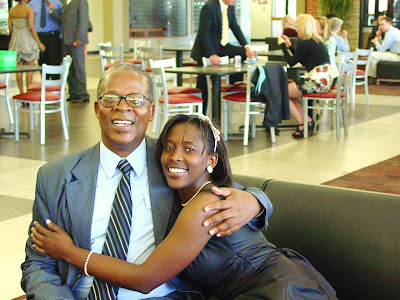We’ve heard a few questions. One is, “What does it mean to be a missionary to the USA?” Another is, “What people group can we pray for?”
It all goes back to the oldest parts of our missionary calling. Jesus told us to go to “all nations, (KJV, NASB, NIV, NLT),” “people (NCV, GNT),” or “folks (WYC)” (Matthew 28:18-20.) The Greek word in Jesus’ commissioning is “ethnos” from which English gives us the term ethnic group. Jesus’ missionary instructions are more thorough than just ticking off nation-states on a world map. Jesus’ instructions command for there to be a missionary presence among every cluster of humanity that uses the pronoun “we” to describe their “people group.”
Thus the missionary task will always be on going until the Lord returns. Humanity is always in a state of change. Missionaries are those called and sent by the Holy Spirit to make disciples and develop churches among each segment of humanity. (For more reflection on the distinctive character of missionary calling see: http://jenkinsinrwanda.
The first steps in a specific missionary calling are the choices of compassion and prayer (Matthew 9:35-38). Therefore, this month we ask for your prayers for our family’s “people group,” the Diaspora of Africa’s Great Lakes.
How do we define Diaspora?
- Dictionaries
are
really interesting on this matter. Most
start with describing the experience of the Jews going into Babylonian exile.
Then they discuss modern phenomena of people being scattered away from their ancestral homeland (http://www.merriam-webster.
com/dictionary/diaspora.) - Dave frequently preached out of Post-Exilic History and Prophets in Uganda and Rwanda, and those portions of the Bible are very relevant to the Diaspora experience.
- There is a little ambiguity in the definitions of Africa’s Great Lakes. It is not a political configuration, but an awareness of similarities of geography, language, history, and culture.
- We define it as the portion of East and Central Africa where the Rift Valley created lakes, fertile highlands, and expansive plains. Thus it is a region blessed by the creative power of God. We consider this region to be Kenya, Uganda, Rwanda, Burundi, Eastern Congo, and Tanzania.
What is the History of Africa’s Great Lakes’ Diaspora?
- In Pre-Colonial times the Great Lakes were ruled by powerful Kingdoms.
- The Colonial Rulers (1880-1962) were Germany (Pre-WWII), Britain, and Belgium.
- The East African Revival (1930’s to 1940’s) deeply transformed the region with unique pietism and unity movements.
- Independence from colonial powers was initially faced with optimism. However, many nations experienced turmoil such as:
- Rwanda Turmoil: 1959 – 1994.
- Uganda Turmoil: Amin, Obote II, and Kony Terrorism.
- Burundi: Series of Civil Wars.
- Congo: Ungovernable East.
- Kenya Election Violence.
- Thus the Great Lakes have experienced many leaving as refugees. However, while living as refugees many excelled as students and became skilled professionals.
- In present days many are dispersing for education and economic opportunities as their home nation is at peace.
- Diaspora develop a unique language pattern that some call Sheng where they blend African vernacular languages with English. Typically, Sheng will be used in situations such as music, humor, and social media communication.
 |
| Chrystelle Lwiza with her dad, Joseph at her university graduation |
- The Diaspora are extremely influential. Many have returned to their home nations during season of peace
o
The Returning Diaspora are the generation of Institution Builders
(similar to the WW2 Generation in the USA.)
o
They are initiators of new churches, schools, business, hospitals,
and transportation systems.
o
Also they are the crafters of government policy and the builders of
national infra-structure.
 |
| Kigali International School 2011 Graduates |
- A New Generation of Diaspora is arising.
o
Many carry 2 or 3 passports.
o
They are educated in both Africa and North America.
o
The
remittances they send home is the largest source of foreign income to their
home nations.
- Yes, they are “Thought Leaders.” (A term we borrowed from media leaders we knew in Uganda.)
o
They are frequently on Skype, email,
twitter, Facebook, and blogs.
o
They
stand as bridges between many varied nations.
o
They are great social influencers.
You see their presence in some ways most clearly at weddings and funerals in which the parking lot is filled with cars with a variety of nations’ bumper stickers and license plates.
What are the struggles of
Africa’s Great Lakes’ Diaspora?
- The Diaspora in North America are diverse in matters such as ethnicity, national origin, education, and professional skill. They include recent refugees, students, and upwardly mobile professionals.
- The second and third generation Diaspora are properly TCK’s (Third Culture Kids), but they have little pastoral care to help them process their complex cultural makeup.
- African vernacular based churches typically do not work well for second and third generation Diaspora.
- Yet, typical Anglo Evangelical churches also are difficult for Diaspora assimilation and pastoral care.
Mungu
akubariki (God bless you),
Dave
and Jana
 |
| Jana's dad and missionary mentor, Gaston Tarbet |




No comments:
Post a Comment